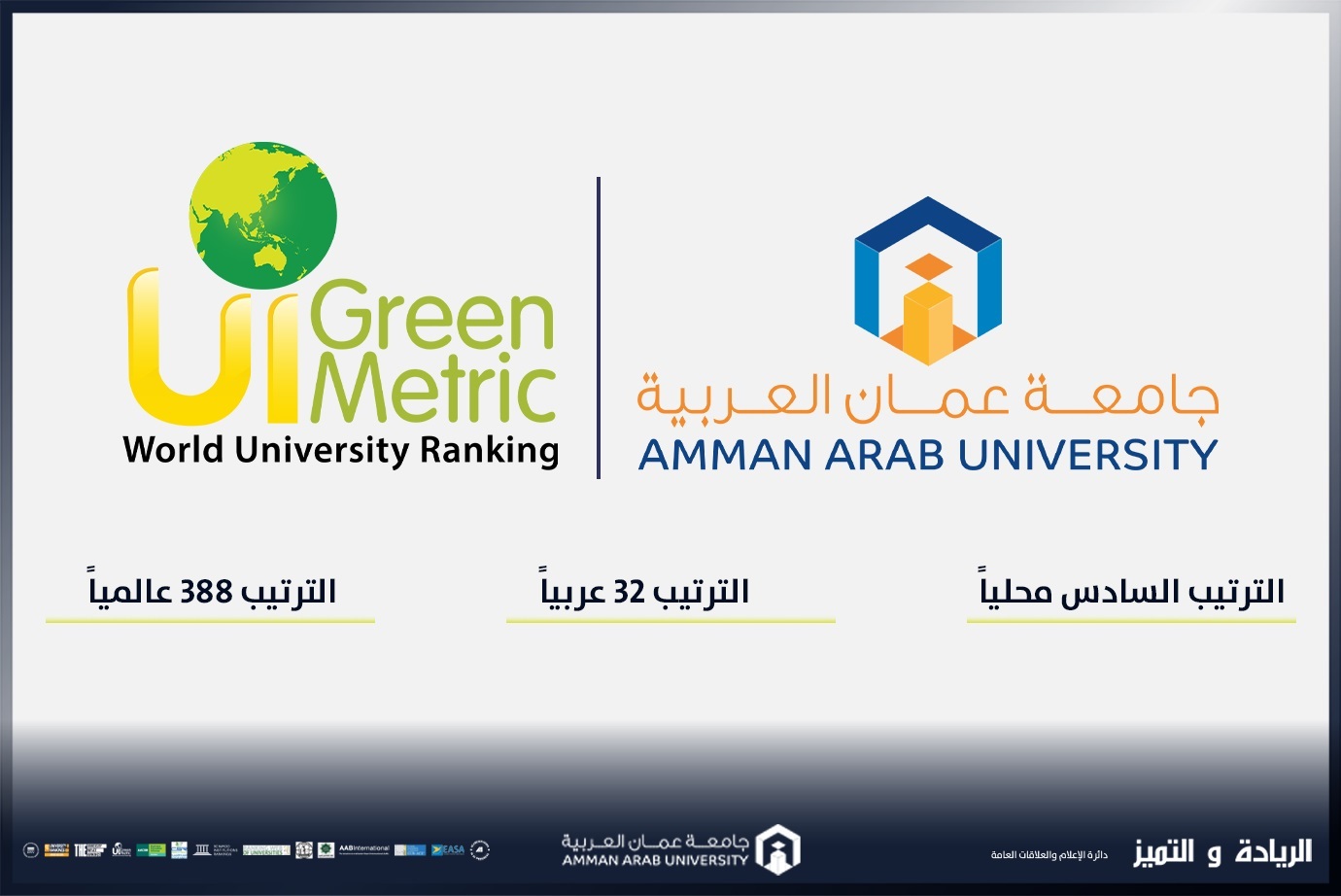More Achievements for Amman Arab University through its inclusion in the Jordanian National Qualifications Framework
As part of Amman Arab University’s endeavors to achieve its strategic objectives and aspirations to raise the level of quality in all aspects, Amman Arab University has been included in the “Jordanian National Qualifications Framework” according to the decision of the Accreditation and Quality Commission for Higher Education Institution No. (81/5/2022) dated 9/ 2/2022.
In this regard, President of Amman Arab University, Prof. Mohamad Al-Widyan, indicated that the inclusion of Amman Arab University in the Jordanian National Qualifications Framework comes as a result of the University’s excellence in its educational programs and its focus on all scientific and research aspects, and pointed out that the University has developed an ambitious plan through which it seeks to place the university within Advanced ranking locally, regionally and internationally through excellence in all academic aspects.
It is worth -mentioning that the University’s inclusion in the National Qualifications Framework brings many benefits, as a road map is developed for the University to accredit and implement national criteria that are followed up, evaluated, and developed by the Accreditation and Quality Commission for Higher Education Institution and ensure their quality, in addition to enhancing the quality of education and training at the University through the application of national quality criteria, and this inclusion will ease the transition from traditional education to student-centered education.
One of the important benefits that the University seeks to achieve through this listing is to ensure regional and international accreditation for the University’s majors and certificates, considering that they are within the Jordanian qualifications system to achieve the required learning outcomes. It will also increase the competition of University students in the local, regional and global labor market, in addition, to encourage learners to continue lifelong learning for clarity of skills, competencies, and knowledge at all educational levels, with the need to constantly ensure that the majors (qualifications) issued by the University are linked to local and global needs.
It is worth noting that the National Qualifications Frameworks (NQFs) is a national project completed in partnership with the German Agency for Development and International Cooperation that includes a hierarchical classification of all levels of qualifications and certificates associated with higher education programs, general education, and vocational and technical training, within knowledge, skills, and competencies for each level that should be linked to the qualification so that it should be a basic reference for institutions of higher and public education and institutions of accreditation and quality assurance so that there are criteria based on clear outcomes for the development of educational programs to develop, evaluate and improve the quality of education. The National Framework consists of 10 levels with distinct learning specifications that represent educational stages, types of academic degrees or levels of experience, starting from pre-school and unskilled qualifications obtained by experience to the doctorate stage, precise medical specialties, and equivalent qualifications obtained from previous learning.
The National Qualifications Framework promotes integration between different educational systems and sectors and defines minimum requirements for educational qualifications at the national level by defining learning outcomes for each qualification and all stages of vocational and technical education and training.







